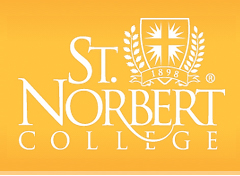Happiness in the Christian Life
Location
Fort Howard Theater, Bemis International Center, St. Norbert College
Start Date
9-26-2013 7:00 PM
Description
Some Christians (not usually Roman Catholics or Anglicans) are skittish about connecting happiness with life in this world. Given its trials and tribulations, western Christians since Augustine of Hippo have sought happiness in heaven because all the joys of this life must be left here. Fortunately, Thomas Aquinas, a theologian thoroughly grounded in the doctrine of creation, had more to say about temporal happiness although the eschaton beckoned him. He appreciated that good health, adequate financial stability and good friends for enjoying life here encourage us to anticipate utter bliss “there.”
Dr. Charry maintains that more remains to be said about temporal happiness than meets the eschatologically oriented eye. While modern Christian (primarily Protestant) ethics has prized unconditional self-sacrifice (agape) as the Christian norm, and often shuddered at Thomas’s embrace of Aristotle’s eudaimonia (flourishing), that seems to them to countenance self-enjoyment rather than sacrifice, if we believe that God truly enjoys watching us flourish and not languish in this life we must forge ahead and explore just how God envisions, enables and enjoys our flourishing as essential to creation’s flourishing.
Happiness in the Christian Life
Fort Howard Theater, Bemis International Center, St. Norbert College
Some Christians (not usually Roman Catholics or Anglicans) are skittish about connecting happiness with life in this world. Given its trials and tribulations, western Christians since Augustine of Hippo have sought happiness in heaven because all the joys of this life must be left here. Fortunately, Thomas Aquinas, a theologian thoroughly grounded in the doctrine of creation, had more to say about temporal happiness although the eschaton beckoned him. He appreciated that good health, adequate financial stability and good friends for enjoying life here encourage us to anticipate utter bliss “there.”
Dr. Charry maintains that more remains to be said about temporal happiness than meets the eschatologically oriented eye. While modern Christian (primarily Protestant) ethics has prized unconditional self-sacrifice (agape) as the Christian norm, and often shuddered at Thomas’s embrace of Aristotle’s eudaimonia (flourishing), that seems to them to countenance self-enjoyment rather than sacrifice, if we believe that God truly enjoys watching us flourish and not languish in this life we must forge ahead and explore just how God envisions, enables and enjoys our flourishing as essential to creation’s flourishing.

